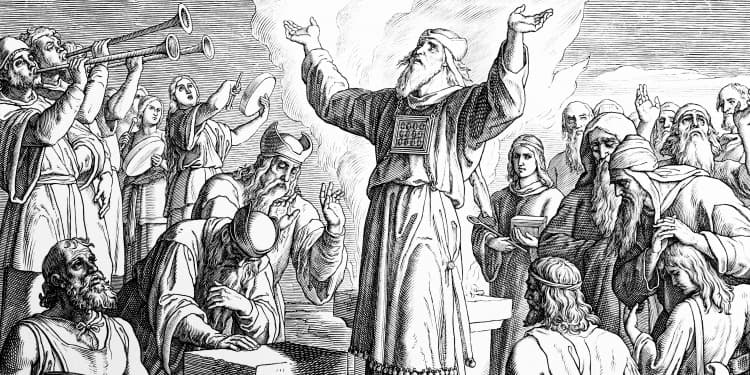Live to Bless, Not to Impress
The Fellowship | April 24, 2018

“No one is to be in the tent of meeting from the time Aaron goes in to make atonement in the Most Holy Place until he comes out, having made atonement for himself, his household and the whole community of Israel.” — Leviticus 16:17
The Torah portion for this week is a double reading, Acharei Mot-Kedoshim, from Leviticus 16:1—20:27. Acharei Mot means death, and Kedoshim means holy. The Haftorah is from Amos 9:7–15.
A question I often ask myself is: “Who would I be if no one was looking?” The reason this question is so important for us to ask once in a while is because it helps us to check how authentically we are living our lives. Would we say things we don’t say if we weren’t worried what others will think? Would we not say certain things if there was no one to please? Or even, do we do the good things we do because these acts impress others, or do we serve and contribute from a place of sincerity and integrity?
In this week’s Torah portion, we learn about the service of the High Priest on Yom Kippur, the Day of Atonement. This was the High Priest’s day to shine. The whole nation looked to him to free them from their sins and bring atonement. Yet, while all eyes were on the High Priest, the Bible commanded: “No one is to be in the tent of meeting from the time Aaron goes in to make atonement in the Most Holy Place until he comes out . . .” The main part of his service had to be performed in utter seclusion. No one could witness the service of the High Priest, “no one is to be in the tent” with him. It was a completely private encounter.
The purpose of this directive was to keep the High Priest grounded in authentic service. If he were to perform his service in front of the whole nation, he might be tempted to feel pride. He might get caught up in how people looked at him with honor, awe, and respect. This would detract from his worship of God and could even turn into worship of self. By telling the High Priest that he had to be alone when he performed the service, God was teaching him to see himself as the only person in world, to have a mentality that whatever he did was purely for God’s pleasure and not at all connected to pleasing others. It was only him and God. It would free him from the need to impress so that he could focus on his duty to bless.
This attitude can benefit us all when we’re choosing how we spend our lives. Too many people live their lives for other people and miss out on what God has truly put on their heart. I once read an anonymous quote that really drives home this point: “Work for a cause, not for applause. Live life to express, not to impress. Don’t strive to make your presence noticed, just make your absence felt.” Let us all live lives of meaningful contribution, even if not a single person notices.
God notices.
